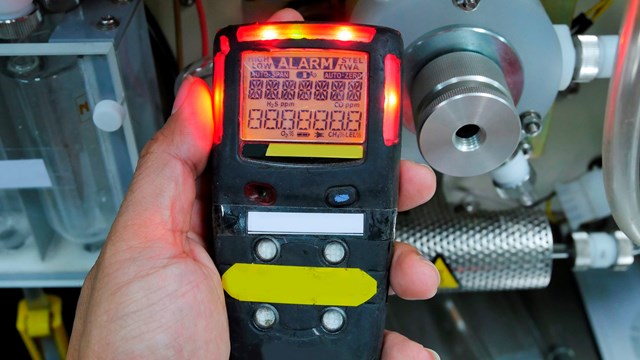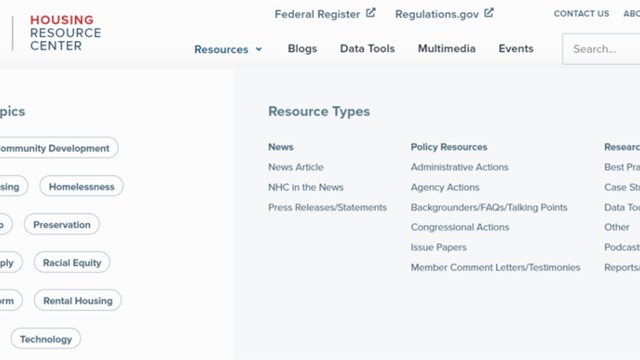Mayor Michael R. Bloomberg recently signed legislation increasing the income exemption eligibility levels to help reduce the tax burden on senior homeowners.
Intro 265 amends the city's administrative code with respect to the Senior Citizens Homeowners Exemption (SCHE) program. SCHE provides tax relief for those aged 65 or older, who reside in one-, two-, or three-family homes, condominium units, or cooperative apartments, and have an annual income below $29,900.
"The Senior Citizen Homeowners Exemption," says Bloomberg, "provides reduced property taxes for eligible New York City senior citizens that own and occupy residential properties. To be eligible, a person must be 65 years of age or older and be the owner and occupant of the property for which the tax abatement is sought. In addition, the senior must have held title to the property for at least 12 months prior to the application date."
Previously, to qualify for the maximum tax exemption of 50 percent of the assessed value of the property, an applicant was required to have an annual income of $20,500 or less; and households with incomes over $20,500 but less than $28,900 were eligible to qualify for graduated exemptions of between five percent and 45 percent. However, enabling legislation was signed in July 2002 by Governor George Pataki to increase those levels. The new maximum income exemption eligibility level is now $21,500 to qualify for the 50 percent property tax exemption, and those earning above $21,500 to a maximum of $29,900 qualify for exemptions of five percent to 45 percent, according to Bloomberg.
The SCHE exemption is based on a sliding scale. For example, if your income is less than $21,500, the exemption is 50 percent off of your property's assessed value. If your income is $21,500 but less than $22,500, the exemption is 45 percent; $22,500 but less than $23,500, 40 percent; $23,500 but less than $24,500, 35 percent; $24,500 but less than $25,400, 30 percent; $25,400 but less than $26,300, 25 percent; $26,300 but less than $27,200, 20 percent; $27,200 but less than $28,100, 15 percent; $28,100 but less than $29,000, 10 percent; and for incomes of $29,000 but less than $29,900, the exemption would be 5 percent off of your property's assessed value.
Eligible property owners may apply for the exemption between July 15th and March 15th in order to qualify for benefits that are reflected in their next annual real estate tax bill. Benefits begin with the July 1 fiscal year following submission of the application. Exemption applications may be filed by mail or in person with the Assessment Office in the borough where the property is located.
According to the Department of Finance, the following restrictions apply:
"¢ If you are the sole owner, you must be 65 or older on or before December 31st of the year in which benefits will begin.
"¢ If you and your spouse are co-owners, only one of you must be 65 or older during the calendar year.
"¢ If the co-owners are brother and sister, only one of you must be 65 during the calendar year.
"¢ If the co-owners are joint tenants or tenants-in-common, all must be 65 during the calendar year.
"¢ The applicant(s) must live in the house, apartment, or unit, and all residential properties, including one-, two-, and three-family homes, condominium units, and cooperative apartments, are eligible.
"¢ The owner must have held title to the property for at least 12 consecutive months prior to March 15th of the year when the exemption goes into effect.
"¢ Combined total income for all owners from all sources must be less than $29,900, including Social Security income and exclusive of losses and allowing for a deduction of documented medical and/or prescription expenses not reimbursed or not paid for by insurance.
"¢ If the property has a 421a, 421b or 421g exemption, the applicant is not eligible unless a specific exemption waiver is obtained and signed.
Some cooperative shareholders, who live in Mitchell-Lama apartments, Redevelopment housing, Housing Development Fund Companies (HDFCs), and in housing under NYC's Department of Housing Preservation and Development's (HPD) Division of Alternative Management Program (DAMP), and have incomes of $20,000 and more, however, are not eligible for the SCHE exemption. Shareholders in these housing types can, however, receive benefits under the Senior Citizen Rent Increase Exemption Program (SCRIE).
"This legislation," adds Bloomberg, "which allows approximately 1,000 additional taxpayers to qualify for the maximum exemption, is an important step in protecting low-income senior citizens who are homeowners, by enabling them to remain in their homes and contribute to the stability and vitality of the city."
According to DOF, the applicant must include the following documentation with their application, which must be completed in its entirety and signed by all the property owners and spouses of the owners seeking the exemption. Secondly, a non-relative must witness the signatures, and an officer of the co-op board, if the property is a cooperative apartment, must also affix the proper certification. Also include daytime phone numbers or numbers of a relative or friend so that the applicant can be reached.
The applicant must provide a:
"¢ Copy of their most recent deed, (recorded or unrecorded) or if a co-op owner, submit a copy of the page(s) of the proprietary lease, which shows the names of the grantor and grantee and the number of shares in their unit. If a proprietary lease is unavailable, you must submit a copy of the stock certificate, (front and back), showing the names of all owners.
"¢ Proof of age of the owner or owners, such as a copy of a birth certificate (if applicant's name is different from that on birth certificate, also attach proof of name change); and/or a copy of a driver's license; and/or a copy of a passport.
"¢ Copy of a death certificate, when one of the individuals listed on the deed/proprietary lease is deceased.
"¢ Copy of a marriage certificate.
"¢ Proof of income for the last calendar year prior to applying, such as a copy of a complete and signed federal income tax return for the preceding calendar year, including all schedules; a Social Security statement; and/or a pension fund statement; or an IRA distribution.
"¢ Copies of bills, receipts and insurance company statements fully documenting any claimed deductions for unreimbursed medical and/or unreimbursed prescription expenses not reimbursed, or not paid for by insurance, including charges not covered due to a deductible provision of the applicant's insurance coverage, for the last calendar year prior to applying.
For further information on SCHE and to hear a recorded list of exceptions, call the Department of Finance telephone information system CityTax Dial at (718) 935-6736 (message #440).







Comments
Leave a Comment